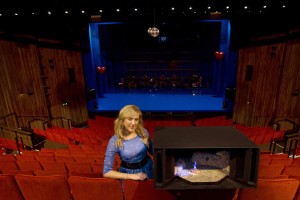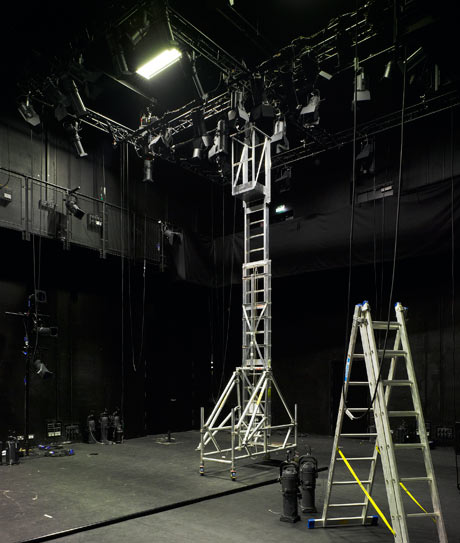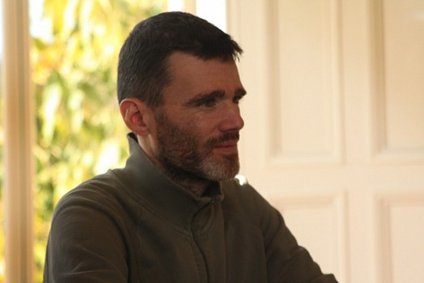There has arguably always been a connection, however tenuous, between academia and the professional realm of Irish theatre and performance. The university system in Ireland has served in one or another as a kind of rough hewn hatchery of theatre artists and companies, usually through loosely structured apprenticeships spent in drama societies or other student-led affiliations. The most prominent example of this kind of link would be the creation of Druid Theatre Company in Galway, which drew some of its core talent from the then University College Galway drama society in the 1970s. However, the connections between the realm of professional theatre and the university are becoming more formalised of late. From Cork to Galway, and from Sligo to Dublin, academia and professional theatre have begun carving out a space where both can participate, collaborate and create together with the aim of enriching the development of new Irish talent, new research, and the growth of local arts communities in times of limited resources.
The Seán Ó Riada PhD Scholarship is an initiative established through a partnership developed between the newly formed University College Cork’s School of Music and Drama and Cork Opera House. Named for composer and Cork native Seán Ó Riada, the scholarship aims to create a shared space between theatre and music at UCC while seeking ways to formalise relationships between the university and the arts community in Cork. The scholarship’s appellation therefore is quite appropriate: in addition to his connection to Cork, Ó Riada’s was the Abbey Theatre’s musical director from 1955 to 1966, says Dr. Mel Mercier, head of the School of Music. For Mercier, who is a composer for theatre in his own right, both the School of Music and the Department of Drama and Theatre Studies have ‘resonated well with each other’, but with the formation of the School of Music and Drama, ‘we’re exploring ways to develop the relationship. One of the most obvious ways to do that is to look at the kind of creative relationship between music and theatre, and one of those areas is the composition of music for theatre production.’ As Dr. Roisin O’Gorman of the Drama and Theatre Studies Department says, the scholarship ‘marks the rich history of collaboration and the potential for developing the creative cross pollination between music and theatre, both at the level of the school at UCC and in Irish theatre and performance more broadly.’
 This being the first year of the scholarship, its inaugural candidate, Dublin-based composer, singer and multi-instrumentalist Tom Lane, will help determine how the PhD will eventually unfold. Lane has worked in a broad spectrum of media, from opera to contemporary dance theatre, and is looking forward to exploring the exciting opportunities provided by the intersections of music, theatre and performance. ‘I feel honoured to have been awarded this scholarship which bears the name of a composer who contributed so much to Irish music, theatrical and otherwise,’ says Lane. ‘The support from Cork Opera House will also play a significant part in bringing the performance element of my research proposal to life.’ And according to Mary Hickson, Chief Executive of the Opera House, how Lane approaches his practice and research will help determine what role the Cork Opera House will play in terms of the practical side of the scholarship. ‘We are willing to give support in any area of the business, be it practical experience on the stage, back stage, in the administration side of the business, etc. Our commitment to the PhD is not restricted.’ Ultimately, for whoever ends up receiving the scholarship, the meaningful fusion of practice and theory will be a prime factor in the course of research that’s conducted, with each aspect amplifying the other.
This being the first year of the scholarship, its inaugural candidate, Dublin-based composer, singer and multi-instrumentalist Tom Lane, will help determine how the PhD will eventually unfold. Lane has worked in a broad spectrum of media, from opera to contemporary dance theatre, and is looking forward to exploring the exciting opportunities provided by the intersections of music, theatre and performance. ‘I feel honoured to have been awarded this scholarship which bears the name of a composer who contributed so much to Irish music, theatrical and otherwise,’ says Lane. ‘The support from Cork Opera House will also play a significant part in bringing the performance element of my research proposal to life.’ And according to Mary Hickson, Chief Executive of the Opera House, how Lane approaches his practice and research will help determine what role the Cork Opera House will play in terms of the practical side of the scholarship. ‘We are willing to give support in any area of the business, be it practical experience on the stage, back stage, in the administration side of the business, etc. Our commitment to the PhD is not restricted.’ Ultimately, for whoever ends up receiving the scholarship, the meaningful fusion of practice and theory will be a prime factor in the course of research that’s conducted, with each aspect amplifying the other.
 A specific regional connection and the fostering of collaboration also characterise the Yeats Design Residency, an initiative launched jointly this year by the Abbey Theatre and Institute of Technology Sligo. The residency provides a new graduate of IT Sligo’s dedicated design course (the only one of its kind in Ireland) with a six-month apprenticeship at the Abbey and a six thousand euro bursary. IT Sligo’s Lydia Concannon was recently named as the first graduate to benefit from this initiative, and will begin the residency this September. The Abbey’s link to Sligo of course runs through W.B. Yeats, who made the county his spiritual home, and whose daughter Anne actually served as the Abbey’s resident designer during the 1940s. Yeats’ own preoccupation with the possibilities of design is evidenced by his association with innovators like Edward Gordon Craig, and by the highly stylized aesthetics of his verse plays in productions in the Abbey, productions that in ways served as an antidote to the more staid stock sets of peasant plays once in rep at the National Theatre. Instrumental in the establishment of the Residency is Frank Conway, who teaches the design course at IT Sligo and was Head of Design at the Abbey Theatre before funding cuts saw the end of on-site set design and construction there. After some informal discussions with Abbey artistic director Fiach Mac Conghail and Abbey technical director Gavin Harding, Conway helped set up a series of short-term placements for Sligo design students at the Abbey, introducing them to the practical realities of theatre production. ‘Little by little it became quite structured and formalised,’ says Conway. ‘We started off just feeling our way, seeing how it might go, getting the feedback from the students being on placement.’ The decision to formalize the relationship came when Mac Conghail and Harding viewed work done by Conway’s students. ‘We were just blown away,’ says Harding of the students’ design models. ‘The standard was remarkable.’ The decision was made then to formalise the developing relationship between the two organisations in the form of the residency. The process by which the beneficiary of the residency is selected reflects the aim to open up to students the collaborative relationships and practical necessities that define the dynamics of professional production. Harding set final year design students the task of designing a set for an imagined production of A Midsummer Night’s Dream for the Abbey stage, and students were challenged with navigating the practical realities of staging a play in the unique setting of the Abbey Theatre. ‘I treated them exactly the way I would a standard, professional designer who comes to stay with us,’ says Harding, ‘particularly people who haven’t worked in the Abbey, because each theatre has a particular way of working, has certain peculiarities.’ Students then presented their final designs to the Abbey staff, much in the same way a professional designer would do in the case of a full production. And for Conway, that kind of detailed introduction to the professional world is essential for any aspiring theatre artist: ‘[Students] suddenly get this whole other layer or level where you get into a professional environment, and one that is really as nurturing, welcoming and embracing as the Abbey is.’
A specific regional connection and the fostering of collaboration also characterise the Yeats Design Residency, an initiative launched jointly this year by the Abbey Theatre and Institute of Technology Sligo. The residency provides a new graduate of IT Sligo’s dedicated design course (the only one of its kind in Ireland) with a six-month apprenticeship at the Abbey and a six thousand euro bursary. IT Sligo’s Lydia Concannon was recently named as the first graduate to benefit from this initiative, and will begin the residency this September. The Abbey’s link to Sligo of course runs through W.B. Yeats, who made the county his spiritual home, and whose daughter Anne actually served as the Abbey’s resident designer during the 1940s. Yeats’ own preoccupation with the possibilities of design is evidenced by his association with innovators like Edward Gordon Craig, and by the highly stylized aesthetics of his verse plays in productions in the Abbey, productions that in ways served as an antidote to the more staid stock sets of peasant plays once in rep at the National Theatre. Instrumental in the establishment of the Residency is Frank Conway, who teaches the design course at IT Sligo and was Head of Design at the Abbey Theatre before funding cuts saw the end of on-site set design and construction there. After some informal discussions with Abbey artistic director Fiach Mac Conghail and Abbey technical director Gavin Harding, Conway helped set up a series of short-term placements for Sligo design students at the Abbey, introducing them to the practical realities of theatre production. ‘Little by little it became quite structured and formalised,’ says Conway. ‘We started off just feeling our way, seeing how it might go, getting the feedback from the students being on placement.’ The decision to formalize the relationship came when Mac Conghail and Harding viewed work done by Conway’s students. ‘We were just blown away,’ says Harding of the students’ design models. ‘The standard was remarkable.’ The decision was made then to formalise the developing relationship between the two organisations in the form of the residency. The process by which the beneficiary of the residency is selected reflects the aim to open up to students the collaborative relationships and practical necessities that define the dynamics of professional production. Harding set final year design students the task of designing a set for an imagined production of A Midsummer Night’s Dream for the Abbey stage, and students were challenged with navigating the practical realities of staging a play in the unique setting of the Abbey Theatre. ‘I treated them exactly the way I would a standard, professional designer who comes to stay with us,’ says Harding, ‘particularly people who haven’t worked in the Abbey, because each theatre has a particular way of working, has certain peculiarities.’ Students then presented their final designs to the Abbey staff, much in the same way a professional designer would do in the case of a full production. And for Conway, that kind of detailed introduction to the professional world is essential for any aspiring theatre artist: ‘[Students] suddenly get this whole other layer or level where you get into a professional environment, and one that is really as nurturing, welcoming and embracing as the Abbey is.’
 Its director Loughlin Deegan sees the foundation of The Lir, Ireland’s National Academy of Dramatic Art at Trinity College Dublin, as a strong step in establishing and enriching the connection between the academy and the professional theatre community in Ireland. ‘The Lir is very determined to make real and meaningful connections with the industry,’ says Deegan, and the recent establishment of The Lir’s Production Support Initiative stands as a clear sign of that determination. This initiative aims to provide a professional production entity with free performance space as well as material and marketing support. In exchange, the production is asked to modify its technical schedule to give The Lir’s stage management students ‘meaningful training opportunities’ that ultimate contribute to the curriculum.
Its director Loughlin Deegan sees the foundation of The Lir, Ireland’s National Academy of Dramatic Art at Trinity College Dublin, as a strong step in establishing and enriching the connection between the academy and the professional theatre community in Ireland. ‘The Lir is very determined to make real and meaningful connections with the industry,’ says Deegan, and the recent establishment of The Lir’s Production Support Initiative stands as a clear sign of that determination. This initiative aims to provide a professional production entity with free performance space as well as material and marketing support. In exchange, the production is asked to modify its technical schedule to give The Lir’s stage management students ‘meaningful training opportunities’ that ultimate contribute to the curriculum.
The idea behind the initiative, says Deegan, ‘came from a particular need we had in the first year of training, which presented an opportunity whereby the acting course and the stage management course are designed to interlock, essentially.’ Ideally, stage management students would be providing technical support to acting students performing in their third year productions. However, as The Lir has now completed its first year of existence, there are no third year productions yet to facilitate stage management training. Visiting professional productions would provide that opportunity for students in the short-term. ‘There are real benefits to us having professionals realising productions at that level [at The Lir],’ says Deegan. ‘If possible, it is something I would hope we might be able to continue.’
Introducing aspiring theatre artists to the practical dimensions of professional theatre production serves as one of the key features of the relationship that has been forged over the decades between Druid Theatre Company and National University Ireland Galway. The close connection between the two institutions isn’t surprising given Druid’s history. NUIG graduates Garry Hynes, Marie Mullen and Mick Lally founded the company in 1975 on the campus of what was then University College Galway. ‘We’ve often worked together during the intervening years,’ says NUIG’s Patrick Lonergan, with the relationship between the two resonating in a number of compelling ways. For example, NUIG hosted an international conference on Synge’s The Playboy of the Western World before the launch of Druid’s hugely successful DruidSynge cycle, and a one act play competition in honour of the late Jerome Hynes, brother of director Garry Hynes and Druid’s former manager, is hosted by the university. The university has also begun housing the company’s archives, and a number of artists associated with the company have presented workshops for students. ‘Those kinds of informal and ad hoc relationships developed over time until it just made sense for the two entities to formalise a partnership,’ says Lonergan. ‘So we’ve done a lot together since the partnership began.’ More recently the two have collaborated in the creation of the Druid Director-in-Residence at the University, which, Lonergan suggests, marks an important development in the evolution of the relationship between NUIG and Druid. ‘For a long time, we at NUI Galway had a sense that we needed to do more to support our students’ and graduates’ understanding of the role of the director; it was an obvious gap in our curriculum which we have wanted to fill for some time. The Druid Director-in-Residence role made sense in that context.’
 With the role now having completed is innagural term, its parameters are still being defined within the collaborative space created by the University and Druid. ‘I feel like the first six months was a dress rehearsal for the role,’ says Thomas Conway, who in addition to being the first Director-in-Residence is also Druid’s literary manager and has taught previously at the NUIG. But Conway feels his position isn’t necessarily that of acting as an official representative of Druid on the NUIG campus. ‘My position has been to promote the theatre arts, and not necessarily to promote the theatre arts as exemplified by Druid, or to promote a theatre approach that Druid would be identified with,’ says Conway. ‘I have a much more free hand than that.’ Conway’s remit in this new role ranged over a number of areas, from teaching, to hosting workshops for students, to sitting on a panel for the Irish Student Drama Association, to acting as a sort of in-house dramaturg for students developing theatre and performance work in their own right. But Conway found his job as Director-in-Residence was also an opportunity to help aspiring student directors explore and develop a critical awareness around the role of the director in theatre production. ‘The director’s role is something that is defined by every [individual],’ says Conway, ‘and to promote one aesthetic would not be, I think, a good use of the role. Putting a critical awareness around a range of expertise, and around the task of defining the role of director yourself, would interest me more.’ Maintaining contact with students after their leaving university is also viewed as extremely important to Conway as a means of providing support to developing theatre artists as they make their way in the world. ‘Having been teaching the MA course in Galway, I would have kept touch with everyone of those graduates, as far as they wanted to be in touch,’ admits Conway. ‘[I’m] constantly responding to their work, constantly making note of opportunities to develop their work, and just keeping in touch with how their work develops... I think universities also have to provide that for students in some way.’
With the role now having completed is innagural term, its parameters are still being defined within the collaborative space created by the University and Druid. ‘I feel like the first six months was a dress rehearsal for the role,’ says Thomas Conway, who in addition to being the first Director-in-Residence is also Druid’s literary manager and has taught previously at the NUIG. But Conway feels his position isn’t necessarily that of acting as an official representative of Druid on the NUIG campus. ‘My position has been to promote the theatre arts, and not necessarily to promote the theatre arts as exemplified by Druid, or to promote a theatre approach that Druid would be identified with,’ says Conway. ‘I have a much more free hand than that.’ Conway’s remit in this new role ranged over a number of areas, from teaching, to hosting workshops for students, to sitting on a panel for the Irish Student Drama Association, to acting as a sort of in-house dramaturg for students developing theatre and performance work in their own right. But Conway found his job as Director-in-Residence was also an opportunity to help aspiring student directors explore and develop a critical awareness around the role of the director in theatre production. ‘The director’s role is something that is defined by every [individual],’ says Conway, ‘and to promote one aesthetic would not be, I think, a good use of the role. Putting a critical awareness around a range of expertise, and around the task of defining the role of director yourself, would interest me more.’ Maintaining contact with students after their leaving university is also viewed as extremely important to Conway as a means of providing support to developing theatre artists as they make their way in the world. ‘Having been teaching the MA course in Galway, I would have kept touch with everyone of those graduates, as far as they wanted to be in touch,’ admits Conway. ‘[I’m] constantly responding to their work, constantly making note of opportunities to develop their work, and just keeping in touch with how their work develops... I think universities also have to provide that for students in some way.’
All these initiatives have a core goal in common: helping to establish for participants a connection with both an institution and a collaborative ethos that can be utilised well into the development of their careers. For IT Sligo and the Abbey, the key aim, as Fiach Mac Conghail has stated, is to keep Irish theatre artists in Ireland. For too long, a large number of Irish designers had to go abroad to learn and develop their craft. With the Yeats Design Residency, says Gavin Harding, the hope is that the opportunity for a designer to hone their craft with a theatre like the Abbey will encourage them to stay in Ireland. ‘It would be lovely to think that somebody who finishes with us here is either offered shows with us, or maybe with Druid, or maybe with Rough Magic, any of the companies in Ireland. But having had their training with us and with Sligo, they may well want to go off and work elsewhere and gain other experiences, but ultimately come back to Ireland. So, it’s always feeding back into the country, this wealth of experience.’ Patrick Lonergan finds both the Irish academy and Irish theatre are fighting similar battles in terms of cuts to the arts and education and both can benefit from closer collaboration on this front as well: ‘...theatre practitioners and theatre scholars are constantly being forced to make a case for the value and importance of the arts before people who seem only interested in the economic return of the work we do, and perhaps there are ways for us to work together in advancing that case.’
Mary Hickson, chief executive of the Cork Opera House, feels that stronger ties between UCC and Cork art institutions both enriches the theatre community in Cork and provides a support network for artists. ‘We would hope that the students within UCC see the Opera House as an extension of their network,’ she says, ‘that our doors are open for them, and that together, both UCC and the Cork Opera House can be active together both nationally and internationally.’ Mel Mercier agrees: ‘Places like the Opera House, for example, and the Cork Midsummer Festival, have a great deal to offer the university. This is a two-way process. I don’t see it in anyway in being one way, that it’s the university that has something to offer the city. If anything, I would probably say that it’s the other way around, that if we can find ways to create these channels, the university and its students and staff will benefit the most from it.’
Jesse Weaver completed his doctoral thesis at University College Cork in 2011. His research focus was on the changing roles of the playwright in Irish theatre production from 1980 to 2010.